Integrating Science, Philosophy, and the Arts to Consider Qi, NSYSU Holds "Roaming Through Qi IDG Workshop"
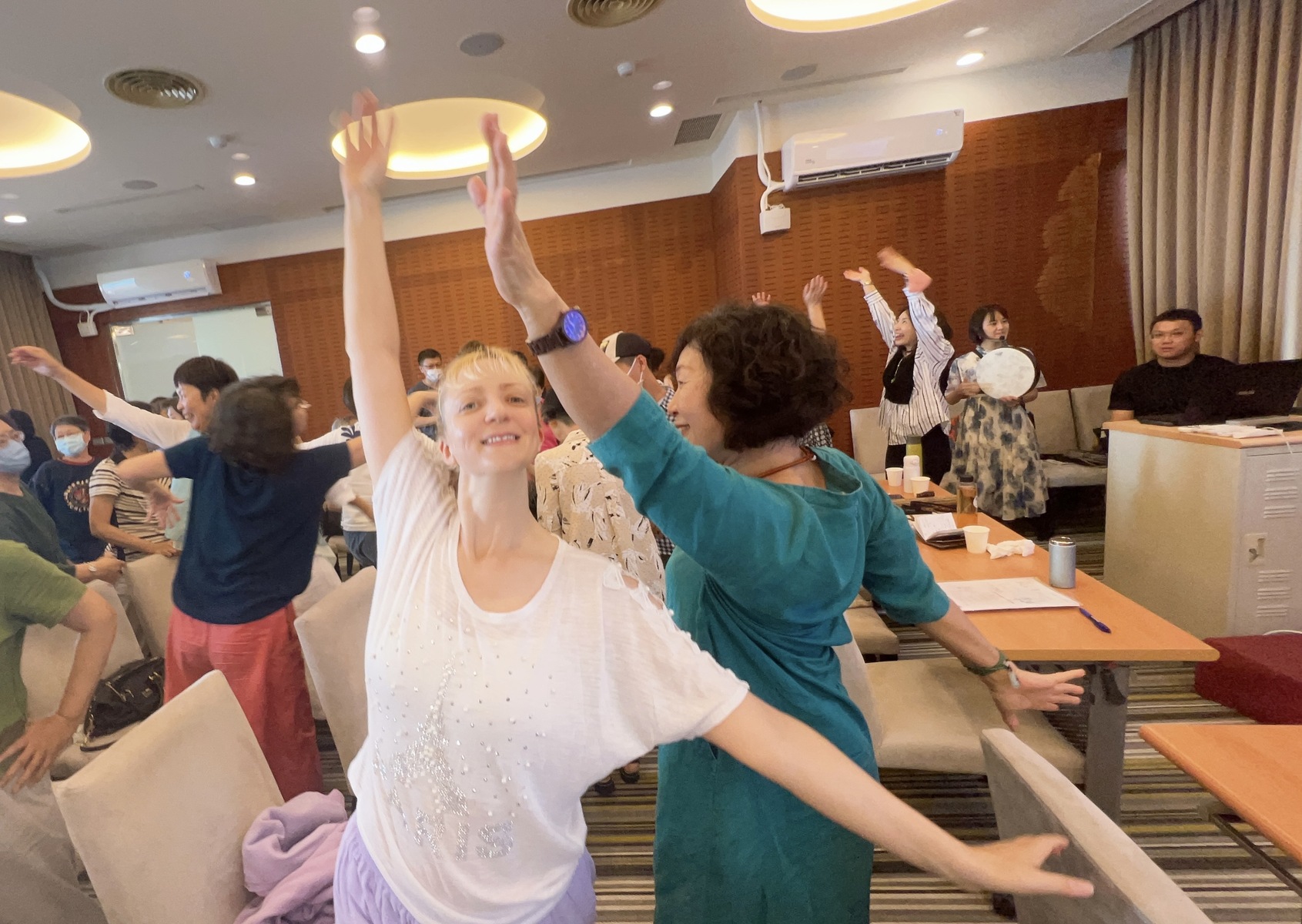
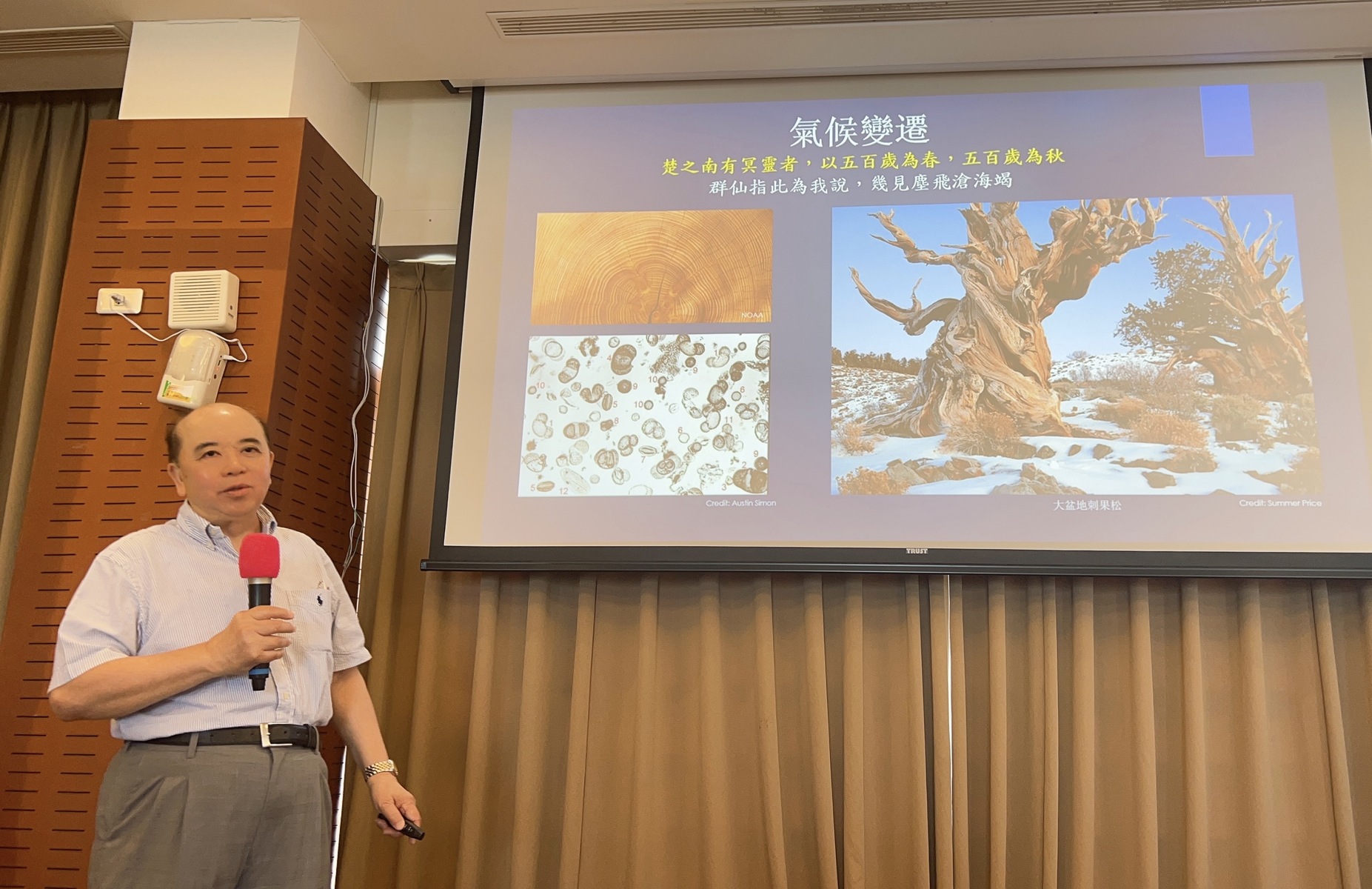
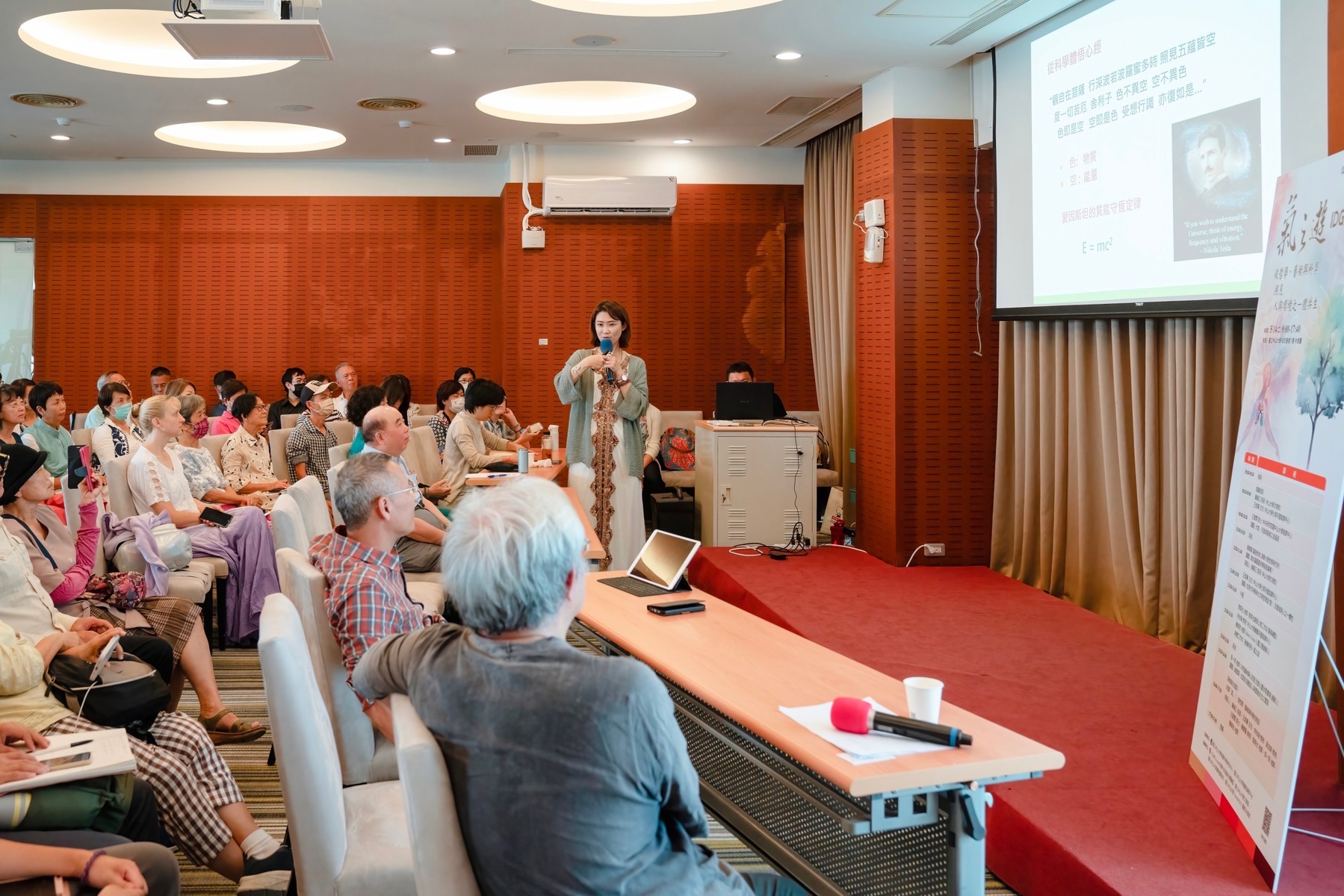
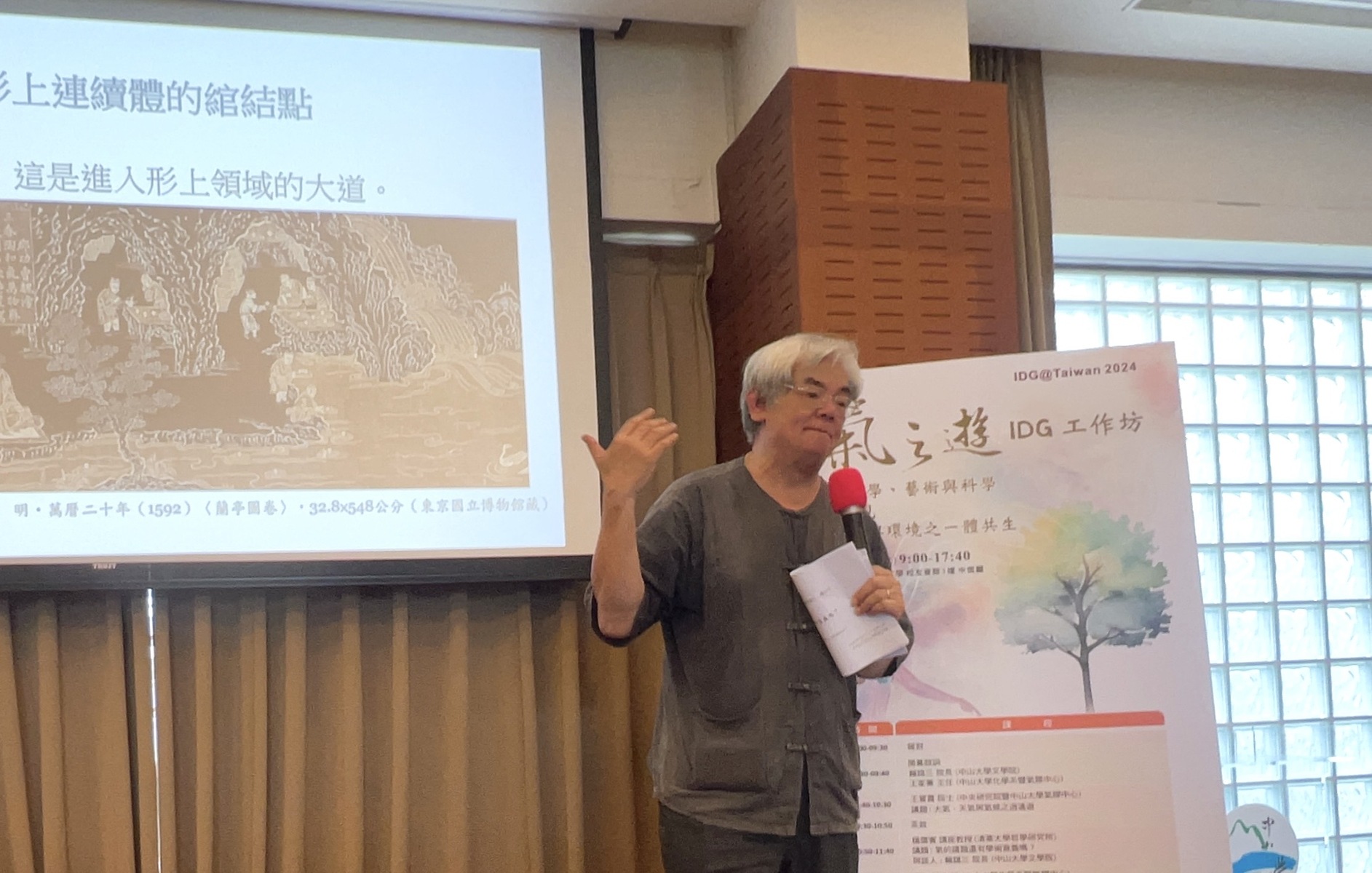
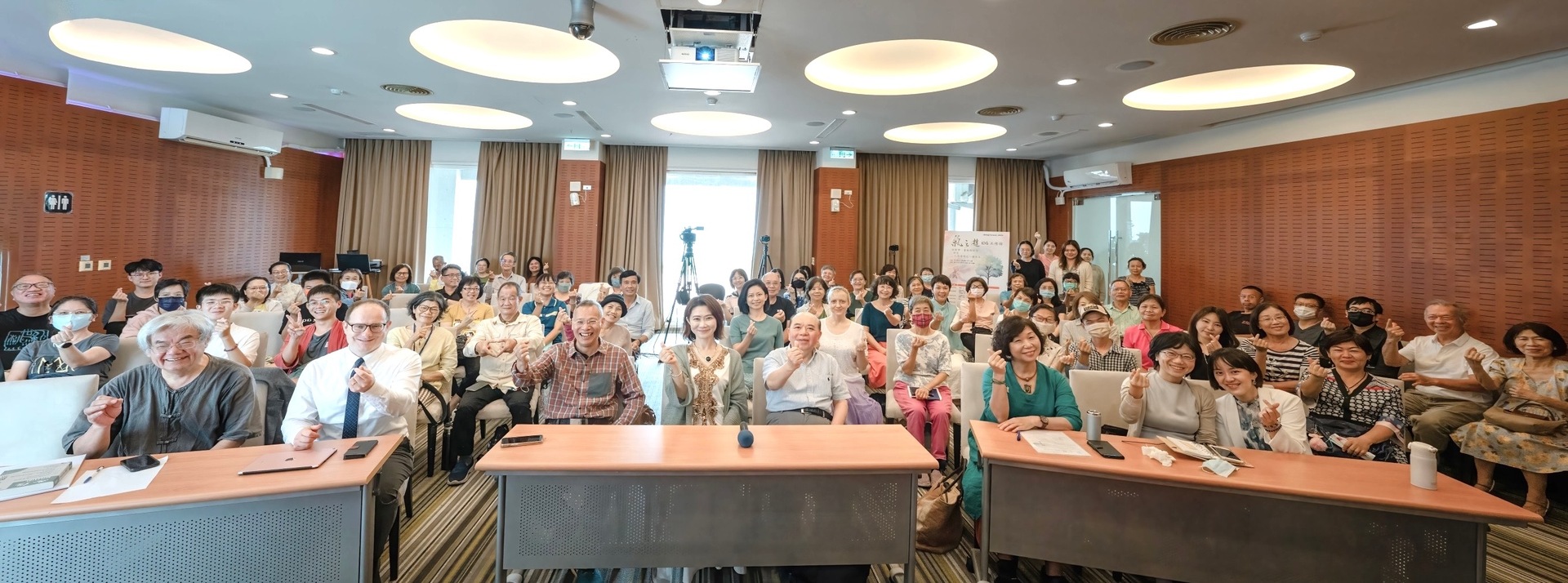
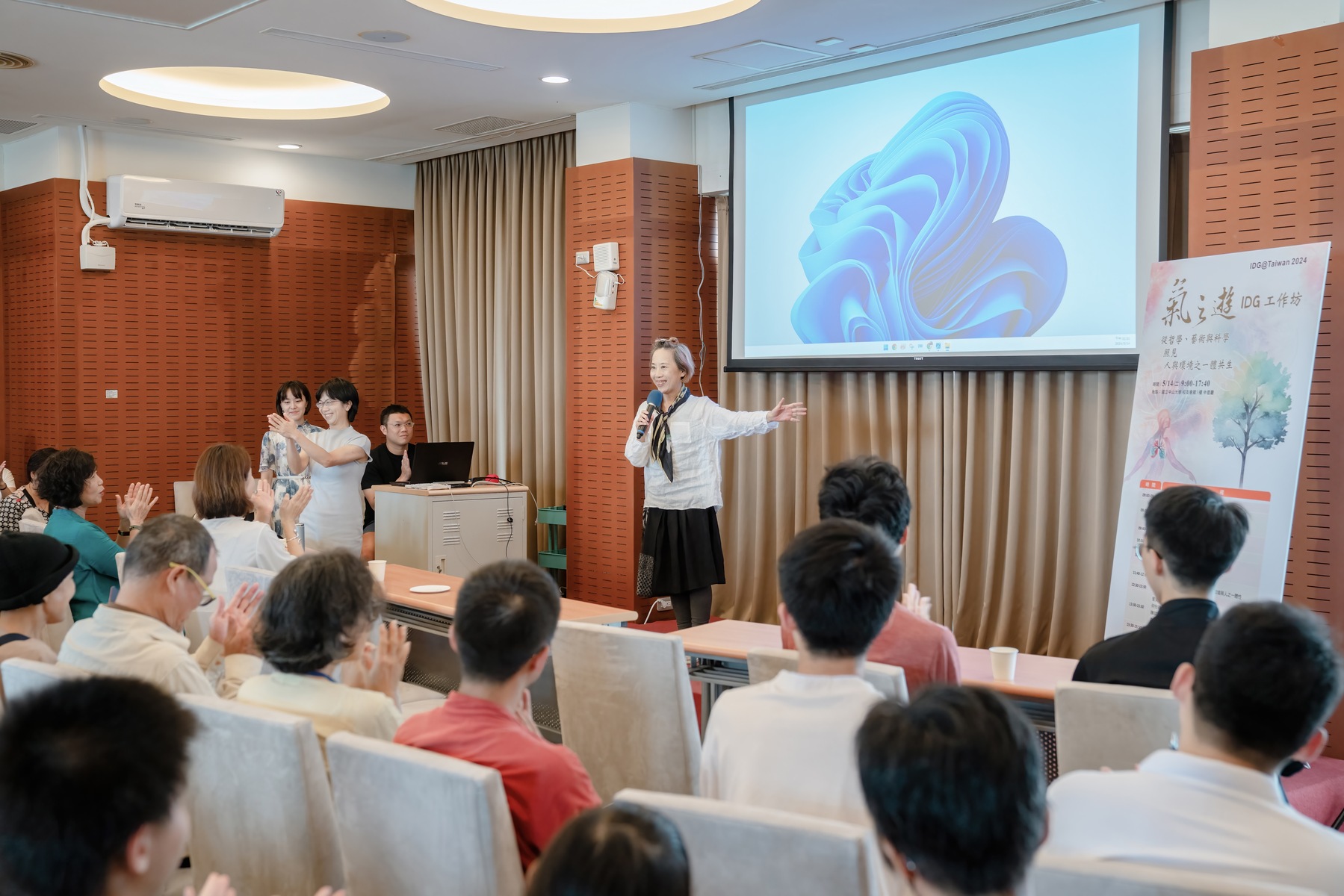
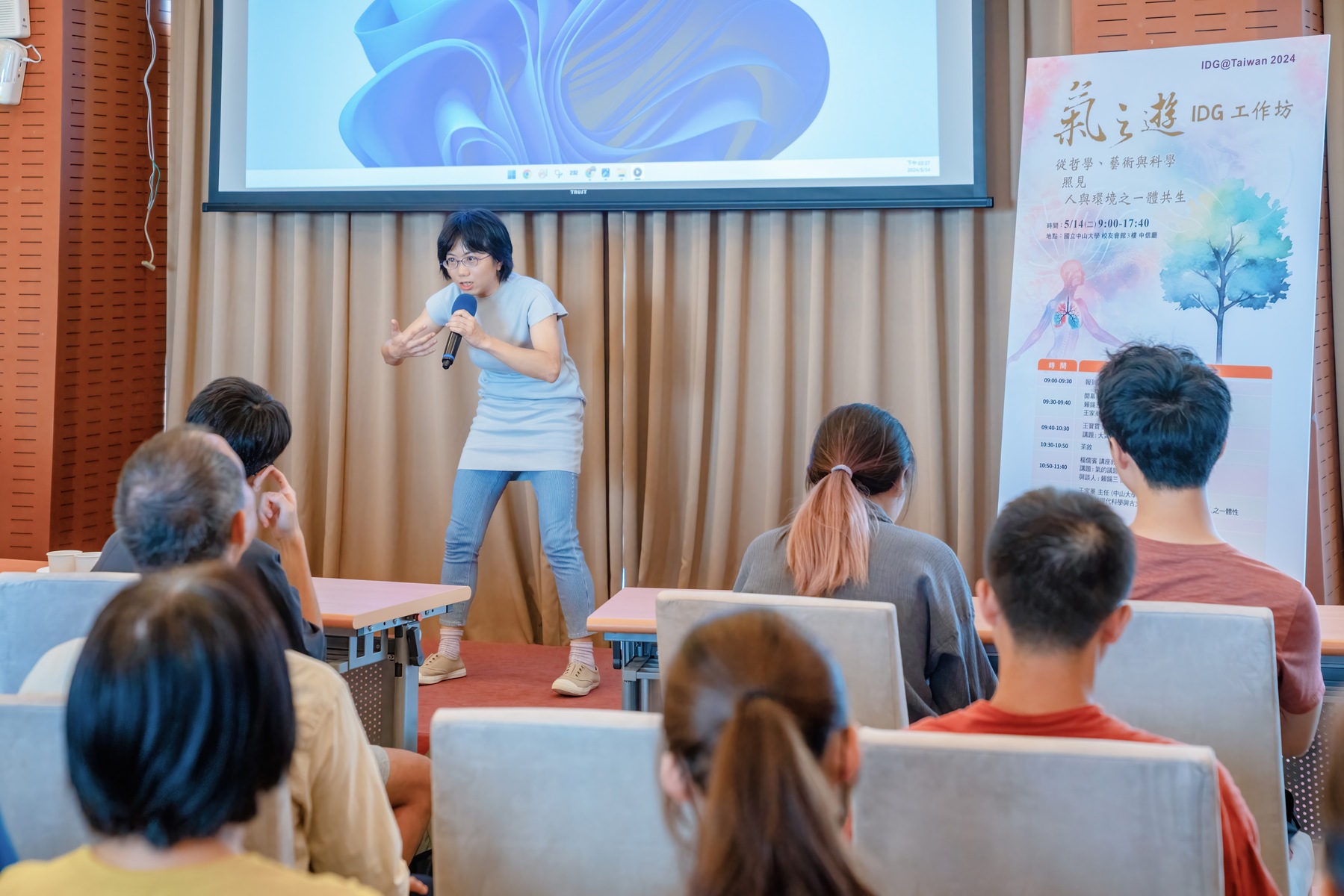
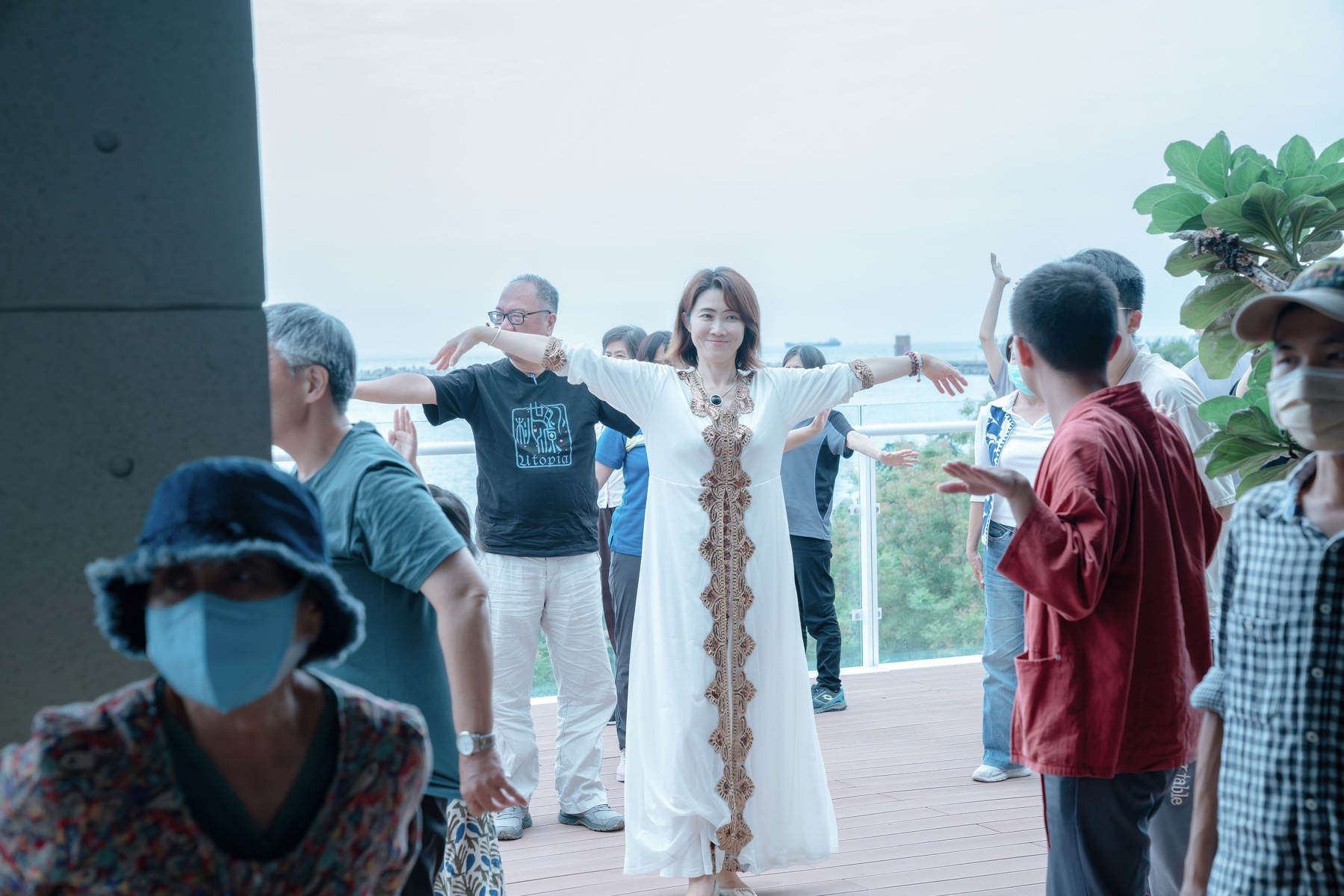
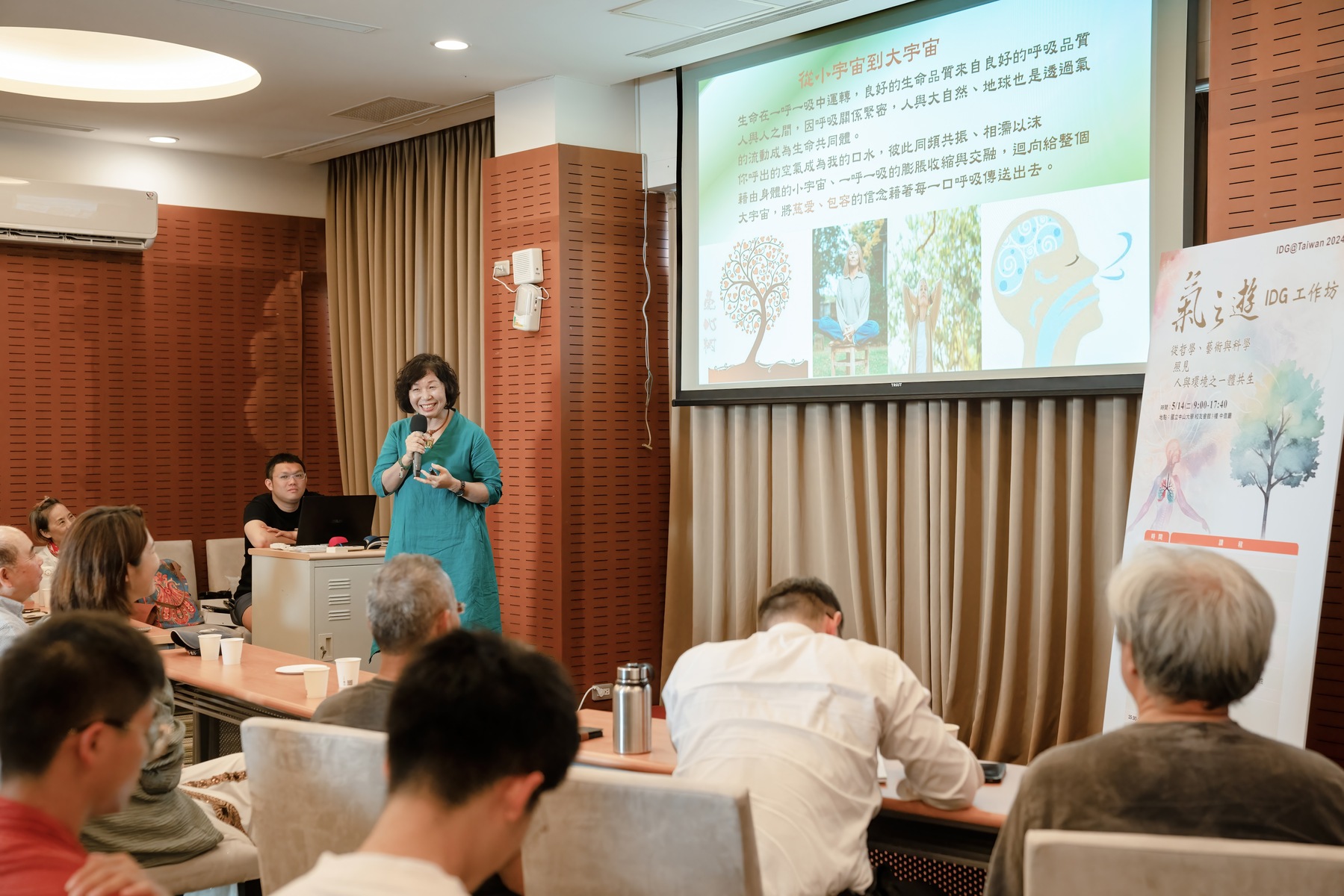

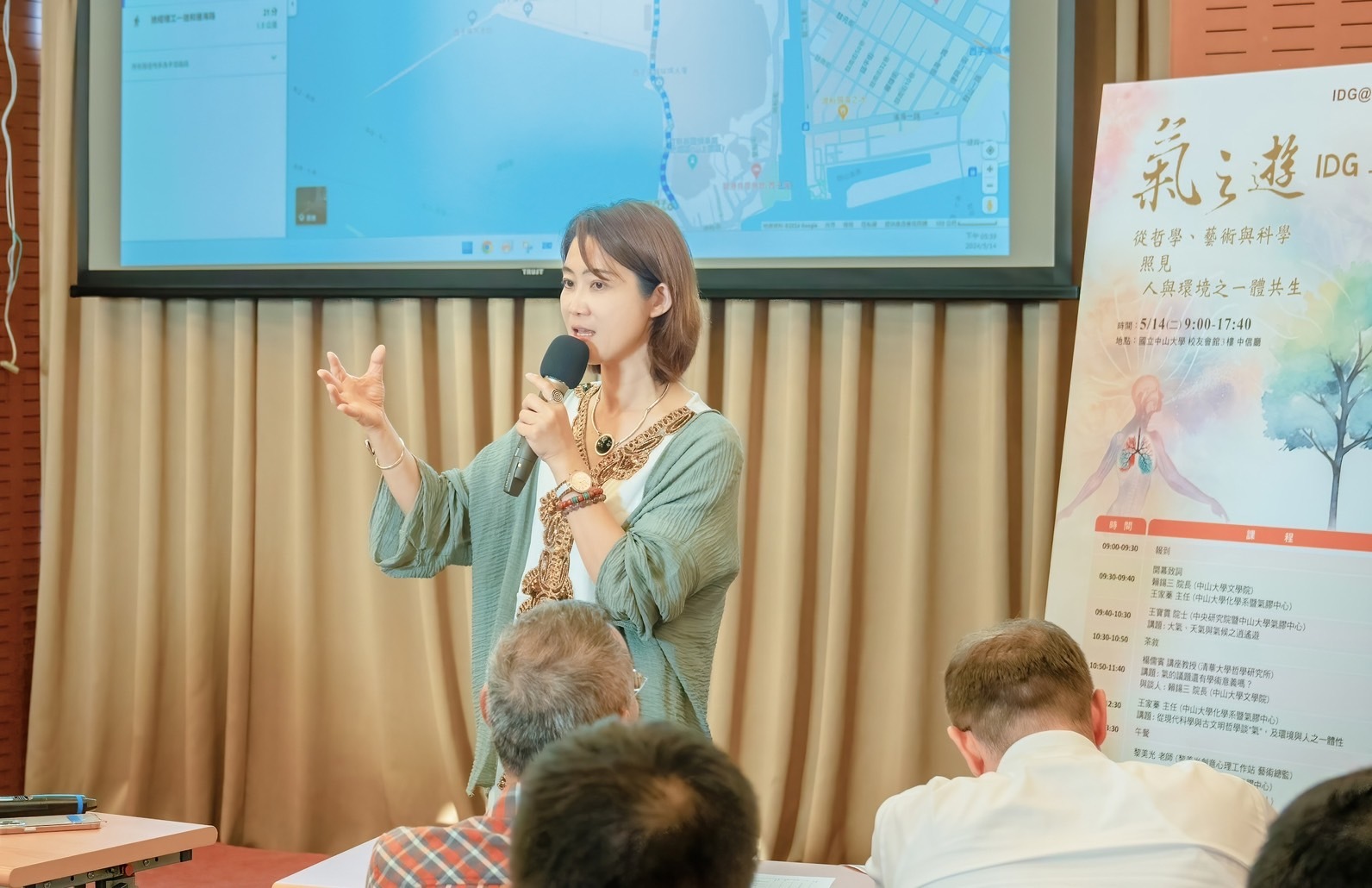


2024-05-28
Air is an indispensable substance for sustaining life, and the nature of Qi (breath, air, atmosphere) has been a topic that has been continuously explored by scientists and philosophers since ancient times. The Aerosol Science Research Center at National Sun Yat-sen University (NSYSU), the Global Sinology Forum at the College of Liberal Arts, and the Department of Theater Arts collaborated to hold a unique "Roaming Through Qi IDG Workshop." The workshop broke the boundaries between science and humanities to examine the question of Qi from three distinct perspectives: science, Eastern and Western philosophy, and art. The workshop set out to re-examine the unified relationship that exists between humanity and the environment, doing so by focusing on how Qi circulates between earth and the atmosphere as well as within all living organisms. The workshop also focused on how humans should respond to the current ecological crises such as air pollution and global warming that the earth is facing in order to promote the sustainable development of the earth's ecology.
Dean of the College of Liberal Arts at NSYSU Hsi-San Lai said in his opening speech that the generational challenges that humanity faces have exceeded the ability of a single specialized academic field to effectively deal with. This workshop was planned to exceed the fixed boundaries that exist between self and other, things and humans, in order to collectively reflect upon a foundational common ethics, assume a greater responsibility for the environment, moving towards a shared community of co-becoming and common prosperity. In her opening remarks, Chia-Chen Wang, Director of the Aerosol Science Research Center of NSYSU, pointed out that philosophy, religion, art, and even current scientific research on quantum mechanics at home and abroad all point to the symbiotic relationship that exists between humanity and the material world.
As individuals or groups currently strive to achieve the 17 Sustainable Development Goals (SDGs) of the United Nations, or as companies strive to meet ESG (Environmental, Social, and Governance) sustainability indicators, they should also return to the space of their inner worlds, examining their inner values and sensibilities, including such key IDG (Inner Development Goals) as self-awareness, sensitivity to the complexity of things (such as the earth's integrated ecological system, in which to effect the part is to effect the whole), a sense of connection with others and the environment, and the establishment of a long-term vision and sense of direction. The original intention of holding this workshop is to understand the movement of Qi between the heavens and earth as well as through all living things, doing so from a variety of perspectives, experiencing the unity and commonality that exists between people and the environment. Mark McConaghy, the Director of the Global Sinology Forum project, also expressed the hope that this event can sow the seeds of hope, produce more powerful linkages between different members of our society, and allow people to experience the unity that exists between people and the environment.
Pao-Kuan Wang, Academician of Academia Sinica, gave a talk with a decidedly Zhuangzian flourish, addressing the topic of "Roaming Across Atmosphere, Weather and Climate." He quoted from Zhuangzi's famed chapter on "The Equality of All Things": "When the Great Clump belches forth its vital breath, we call it the wind." Professor Wang discussed the flow of gases in the atmosphere of celestial bodies, natural laws, as well as the long-term trend and underlying science of climate change. Rur-Bin Yang, Chair Professor at the Institute of Philosophy at Tsing Hua University and an authority on the theory of Qi in China, elaborated on the meaning of Qi from a variety of perspectives, including the worldview of ancient China, which was grounded in the cultural presuppositions of Qi, including the unity of the myriad things and the mutually constructed nature of a universe of unified difference. He also discussed the role of Qi played in connecting the body and heart-mind, heart-mind and things, subject and object, and the physical and metaphysical. In doing so, he enabled participants in the conference to gain a vital sense of perspicacity regarding the relational view of the cosmos embodied by Qi: "Co-emergent heaven and earth, the unity of the myriad things." In all, he powerfully presented a philosophy that unifies the body and heart-mind.
In her presentation on Qi, Chia-Chen Wang, Director of the Aerosol Science Research Center at NSYSU, further combined modern science and the philosophy of ancient civilizations both East and West. Director Wang provided an overview of the way in which Eastern and Western philosophy from ancient Greek, Indian, Taoist, Confucian and Buddhist classics all addressed the concept of Qi in various ways. She also explored Qi from within the epistemic framework of modern science, sharing with participants the latest research developments in meteorology, atmospheric science, chemical kinetics and dynamics, aerosol science, respiratory dynamics as well as thoracic medicine, providing a powerful vision of the science behind Qi as a force which animates both macro and micro dimensions of our world. Professor Wang went further in her elaborations, utilizing quantum mechanics as a means of exploring the nature of matter and the functions of the five senses, revealing the unity and interaction between human beings and the environment. All told, her presentation revealed how knowledge systems both ancient and modern, Eastern and Western, can mutually illuminate one another.
A body workshop was jointly led by I-Lien Ho, Associate Professor of the Department of Theater Arts of NSYSU, Mei-Kuang Li, Artistic Director of Mei-Kuang Li Creativity Psychology Workstation, and Izumi Chen, founder of Moon Voice: Sound of the Soul. These three teachers lead participants to feel the movement of Qi in the body during impromptu dance. The workshop started with a consideration of the shape of the Chinese character Qi, moving on to such concepts as "rice" sprouting, forming stalks, cooking rice, and feeling the connection between yourself and the land. Then the ceremonial performance of the indigenous people of Papua Guinea was invoked to breathe with the land, hands becoming eyes to soar, transforming into the legendary eagle and roc of Zhuangzi's text. What emerges is as sense that the myriad things we see before us are all our family. The youngest child in this workshop attended alongside her mother, providing the following feedback regarding the activity: "I really felt that my hands saw a lot of scenery, I encountered my soul." The penultimate session of the workshop saw Yi-He Li, the founder of Cleansing Rain-Sounding Forest-Quiet Heart B&B and Ecological Soul Leisure Farm, share with workshop participants her experience in realizing a specific model for the co-becoming and co-prosperity of humans and the earth, done so through the green architecture of her farming and retreat community. Her B&B has just won the environment first-ever prize of the Pingtung County Hotel Industry Oscar "Golden Key Award" for an establishment with a pre-eminent, ecologically friendly environment.
